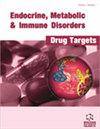Current Developments in the Prevention and Improvement of Intestinal Disorders: A Mini-Review
IF 2
4区 医学
Q3 ENDOCRINOLOGY & METABOLISM
Endocrine, metabolic & immune disorders drug targets
Pub Date : 2024-05-17
DOI:10.2174/0118715303285268240415040311
引用次数: 0
Abstract
Background: Recently, the number of patients who manifest intestinal disorders has increased. Particularly, Irritable Bowel Syndrome (IBS) patients and Inflammatory Bowel Disease (IBD) patients, which include Ulcerative Colitis (UC) and Crohn’s Disease (CD), are on the rise, especially in the young generation. Behcet’s disease (an autoimmune disease) and bowel obstruction are also common intestinal disorders. Furthermore, colorectal cancer, including colon and rectum cancer and small intestinal cancer, are the typical disorders in the intestine. Other disorders in the digestive tract are infectious diseases like Helicobacter pylori infection. Even though symptomatic treatments have been increasing for the treatment of intestinal disorders, the ways of improving and preventing these diseases are still controversial. Objective: The progress of medicine and treatment is rapid. However, recent approaches to the prevention and improvement of these intestinal disorders are suppressing dysbiosis and preventing chronic inflammation. This mini-review discusses the hypothesis of whether the improvement of the diet is a preferable choice for the prevention of these intestinal disorders. Dietary interventions are beneficial for the prevention and improvement of intestinal disorders since the first approach to intestinal disorders is dietary intervention. The Mediterranean diet, the diet from the 5-a-day campaign, and the Japanese diet are well-known healthy dietary strategies. A healthy diet regimen is not only beneficial for the prevention of intestinal disorders but also a useful strategy to reduce stress and ameliorate mental illness. In addition, the intake of phytochemicals is good for keeping healthy gut microbiota and preventing intestinal disorders. Furthermore, vitamin D3 intake with these phytochemicals works as an adjuvant to improve gut microbiota and upregulate immune responses. As a result, the decreasing production of TNF-α ameliorates chronic inflammation and intestinal disorders at an early stage. Conclusion: In recent years, prevention of the non-disease condition “ME-BYO” has been a popular approach for healthy and long living in Japan. This idea prevents the manifestation of diseases before the onset and is also applicable to intestinal disorders. This mini-review discusses ways of preventing and ameliorating intestinal disorders.预防和改善肠道疾病的最新进展:微型综述
背景:最近,表现为肠道疾病的患者人数有所增加。特别是肠易激综合征(IBS)患者和炎症性肠病(IBD)患者(包括溃疡性结肠炎(UC)和克罗恩病(CD))的人数在不断增加,尤其是在年轻一代中。白塞氏病(一种自身免疫性疾病)和肠梗阻也是常见的肠道疾病。此外,大肠癌(包括结肠癌、直肠癌和小肠癌)也是典型的肠道疾病。其他消化道疾病还包括幽门螺旋杆菌感染等传染性疾病。尽管治疗肠道疾病的对症疗法越来越多,但改善和预防这些疾病的方法仍存在争议。目的:医学和治疗的发展日新月异。然而,最近预防和改善这些肠道疾病的方法是抑制菌群失调和预防慢性炎症。这篇微型综述讨论的假设是,改善饮食是否是预防这些肠道疾病的首选。饮食干预有利于预防和改善肠道疾病,因为治疗肠道疾病的首要方法就是饮食干预。地中海饮食、"每日 5 餐 "运动中的饮食以及日本饮食都是众所周知的健康饮食策略。健康饮食不仅有利于预防肠道疾病,也是减轻压力和改善精神疾病的有效策略。此外,摄入植物化学物质有利于保持肠道微生物群的健康,预防肠道疾病。此外,摄入维生素 D3 和这些植物化学物质可作为改善肠道微生物群和提高免疫反应的辅助剂。因此,减少 TNF-α 的产生可及早改善慢性炎症和肠道疾病。结论近年来,预防非疾病状态 "ME-BYO "已成为日本人追求健康长寿的一种流行方法。这一理念可在疾病发生前预防疾病的表现,同样适用于肠道疾病。本微型综述将讨论预防和改善肠道疾病的方法。
本文章由计算机程序翻译,如有差异,请以英文原文为准。
求助全文
约1分钟内获得全文
求助全文
来源期刊

Endocrine, metabolic & immune disorders drug targets
ENDOCRINOLOGY & METABOLISMIMMUNOLOGY-IMMUNOLOGY
CiteScore
4.60
自引率
5.30%
发文量
217
期刊介绍:
Aims & Scope
This journal is devoted to timely reviews and original articles of experimental and clinical studies in the field of endocrine, metabolic, and immune disorders. Specific emphasis is placed on humoral and cellular targets for natural, synthetic, and genetically engineered drugs that enhance or impair endocrine, metabolic, and immune parameters and functions. Moreover, the topics related to effects of food components and/or nutraceuticals on the endocrine-metabolic-immune axis and on microbioma composition are welcome.
 求助内容:
求助内容: 应助结果提醒方式:
应助结果提醒方式:


